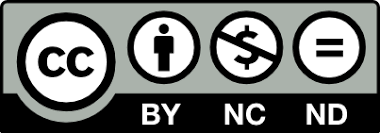THE MODIFICATION OF HUMAN NATURE IN DYSTOPIAN LITERATURE IN EUROPE AND GEORGIA
DOI:
https://doi.org/10.52340/PUTK.2024.2346-8149.09.07Keywords:
Dystopia, Transhumanism, Uniformisation, Human nature, ModificationAbstract
Dystopia is defined as the reverse, or even the antithesis, of Utopia and the very sign of our times, pregnant with the omnipresence contained in the Western imagination. Thus, it draws its strength from the cultural challenges and issues at stake in contemporary society. Literature, for its part, reflects the ideas of dystopian thought from the current mundane epoch and appropriates the subject to expand images of a disenchanted world, with themes that warn against negative repercussions and the fallout that comes from a reality that humanity tried to construct.
As a type of thought forged by crossing philosophical, political or social considerations, Dystopia bills itself as a literary genre of the imaginary that interrogates and disturbs, as it feeds on disillusions and warns against nightmarish Utopic plans that are bound to fail.
It was in the 20th century that dystopia appeared in literature and played on the dichotomy of Dystopia/Utopia while at the same time taking the shape of ambivalences found within the notion of Dystopia so as not to close itself into a binary structure limited to Good and Evil. It reflects the preoccupations of the present epoch marked by events such as military conflicts, nuclear threats, the relationship of Man to the environment and, finally, to himself. Thus, it correlates with the new challenges to which Man is exposed and the literary form in which Dystopia appears.
The present work aims to study the appearance of dystopian thought in European literature at the turn of the 20th and continuing into the 21st century. It focuses on Man’s transformation, nature, and way of thinking at the heart of a dystopian system built and imagined by European authors. The objective is to establish common aspects as well as to show the differences in the points of view in the representations of the “new individual” and his characteristics and ways of thinking that are at the heart of the dystopian universe of Michael Houellebecq, Kazuo Ishiguro and Zura Jishkariani.
Full Text (PDF)
References
Bréan, S. Ironic artifacts? Re-readings of The Possibility of an Island by Michel Houellebecq, (2016.08)
Bréan S, Science fiction in France, subtitled Theory and history of literature, Ed. SUP, (2012)
Houellebecq, M. Contemporary architecture as a vector for accelerating travel, in Staying Alive, Flammarion, coll. Librio, (1997).
Jamagidze, M. The concept of futurism in Zura Jishkariani's novel საღეჭი განთიადები; Sugar Free (2021.11).
Laurence, D. The end of (natural) history: The elementary particles of Houellebecq Michel. Tangency, (73), 93–114. https://doi.org/10.7202/009120ar, (2003)
More M. A Letter to Mother Nature, (1999) (revision 2009). WILEY, Online Library.
Novak-Lechevalier A. Vertigo of the limit: Houellebecq and poetic transgression, French cultural studies. Volume 31, issue 1, (02.2020) p.10-12. SAGE journals.
Scappaticci E. Klara and the Sun, by Kazuo Ishiguro; the SF novel of our very human solitude, (09.22.2021). Usbek &Rica
Trousson, R. Travels to the lands of nowhere, Editions of the University of Brussels, Faculty of Philosophy and Letters, (1979)












